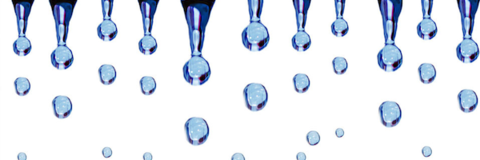
Hydrogen: 40 Review Papers
Molecular hydrogen application in stroke
Stroke is a major cause of mortality and morbidity worldwide. Effective treatments are limited. Molecular hydrogen is emerging as a novel medical gas with therapeutic potential for various neurological diseases, including stroke. We reviewed the experimental and clinical findings of the effects of molecular hydrogen therapy in stroke patients and models. The underlying neuroprotective mechanisms against stroke pathology were also discussed.
Huang L, Lenahan C, Boling W, Tang J, Zhang JH. Molecular Hydrogen Application in Stroke: Bench to Bedside. Curr Pharm Des. 2021;27(5):703-712.
Hydrogen gas as an exotic performance-enhancing agent
Hydrogen gas (H2 ) has entered the world of experimental therapeutics approximately four and a half decades ago. Over the years, this simple molecule appears to drive more and more scientific attention perhaps due to a dualism of H2 affirmative features demonstrated in numerous in vitro, animal and human studies on one side, and stillpuzzling mechanism(s) of its biological activity on the other. Up to this point, H2 was scrutinized for more than 170 different disease models and pathologies, and many research groups across the world have lately started to dynamically investigate its conceivable performance-enhancing potential. We outlined here the studies indexed in leading research databases (PubMed, Web of Science, SCOPUS, JSTORE) that explored the effects of hydrogen on exercise performance, and also addressed important restraints, open questions, and windows of opportunities for forthcoming research and possible H2 enactment in exercise physiology. About two dozen trials have been identified in this domain, with most published during the past 5 years, while drinking hydrogen-rich water recognized as the most convenient method to deliver H2 in both animal and human studies. Either administered as an inhalational gas, enteral hydrogen-rich water, or intravenous hydrogen-rich saline, H2 seems to favorably affect various exercise performance outcomes and biomarkers of exercise-associated fatigue, inflammation, and oxidative stress. Not all studies have shown corroborative effects, and it appears that the gold-standard protocol for applying H2 in the field of exercise science does not exist at the moment, with studies markedly differ in the dose of H2 administered, the duration of a treatment, and the source of hydrogen. H2 is a newfangled and rather effective performance-enhancing agent yet its promising ergogenic potency has to be further validated and characterized in more well-controlled, appropriately sampled and long-term mechanistic trials. Also, appropriate regulation of hydrogen utilization in sport as an exotic medical gas may require distinctive legislative actions of relevant regulatory agencies in the future.
Ostojic SM. Hydrogen Gas as an Exotic Performance-Enhancing Agent: Challenges and Opportunities. Curr Pharm Des. 2020 Sep 22. doi: 10.2174/1381612826666200922155242.
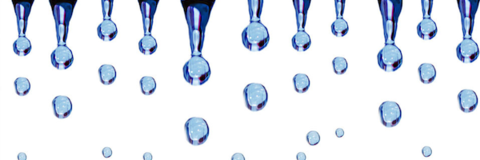
Hydrogen: 2 Skin Studies
Improvement of psoriasis-associated arthritis by treatment with molecular hydrogen
Psoriasis, a chronic inflammatory skin disease, is caused by infiltrating lymphocytes and associated cytokines, including tumor necrosis factor (TNF)α, interleukin (IL)-6, and IL-17. Effective treatments, including pathogenesis-based biological agents against psoriasis, are currently under development. Although the role of reactive oxygen species (ROS) in the pathogenesis of psoriasis has been investigated, it remains to be fully elucidated; ROS-targeted therapeutic strategies are also lacking at present. Therefore, the objective of the present study was to assess whether H2, a ROS scavenger, has a therapeutic effect on psoriasis-associated inflammation by reducing hydroxyl radicals or peroxynitrite in the immunogenic psoriasis cascade. Three methods were used to administer H2: Drop infusion of saline containing 1 ppm H2 (H2-saline), inhalation of 3% H2 gas, and drinking of water containing a high concentration (5-7-ppm) of H2 (high-H2 water). Treatment efficacy was estimated using the disease activity score 28 (DAS28) system, based on C-reactive protein levels, and the psoriasis area and severity index (PASI) score, determined at baseline and following each H2 treatment. Furthermore, levels of TNFα, IL-6, and IL-17 were analyzed. The DAS28 and PASI score of the three patients decreased during H2 treatment, regardless of the administration method. The psoriatic skin lesions almost disappeared at the end of the treatment. IL-6 levels decreased during H2 treatment in Case 1 and 2. IL-17, whose concentration was high in Case 1, was reduced following H2 treatment, and TNFα also decreased in Case 1. In conclusion, H2 administration reduced inflammation associated with psoriasis in the three cases examined and it may therefore be considered as a treatment strategy for psoriasis-associated skin lesions and arthritis.
Link to Full Text
Ishibashi T, Ichikawa M, Sato B, et al. Improvement of psoriasis-associated arthritis and skin lesions by treatment with molecular hydrogen: A report of three cases. Mol Med Rep. 2015 Aug;12(2):2757-64.
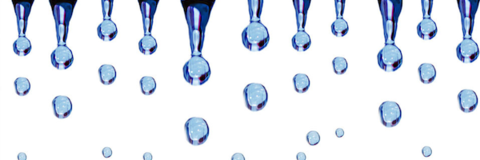
Hydrogen: 7 Nervous System Studies
Inhalation of hydrogen in Parkinson’s disease
Hyposmia is one of the earliest and the most common symptoms in Parkinson’s disease (PD). The benefits of hydrogen water on motor deficits have been reported in animal PD models and PD patients, but the effects of hydrogen gas on PD patients have not been studied. The authors evaluated the effect of inhalation of hydrogen gas on olfactory function, non-motor symptoms, activities of daily living, and urinary 8-hydroxy-2′-deoxyguanine (8-OHdG) levels by a randomized, double-blinded, placebo-controlled, crossover trial with an 8-week washout period in 20 patients with PD. Patients inhaled either ~1.2-1.4% hydrogen-air mixture or placebo for 10 minutes twice a day for 4 weeks. Inhalation of low dose hydrogen did not significantly influence the PD clinical parameters, but it did increase urinary 8-OHdG levels by 16%. This increase in 8-OHdG is markedly less than the over 300% increase in diabetes, and is more comparable to the increase after a bout of strenuous exercise. Although increased reactive oxygen species is often associated with toxicity and disease, they also play essential roles in mediating cytoprotective cellular adaptations in a process known as hormesis. Increases of oxidative stress by hydrogen have been previously reported, along with its ability to activate the Nrf2, NF-κB pathways, and heat shock responses. Although the authors did not observe any beneficial effect of hydrogen in our short trial, they propose that the increased 8-OHdG and other reported stress responses from hydrogen may indicate that its beneficial effects are partly or largely mediated by hormetic mechanisms.
Hirayama M, Ito M, Minato T, et al. Inhalation of hydrogen gas elevates urinary 8-hydroxy-2′-deoxyguanine in Parkinson’s disease. Med Gas Res. 2019 Jan 9;8(4):144-149.

Hydrogen: 2 Muscle Studies
Effectiveness of oral and topical hydrogen for sports-related soft tissue injuries
Because hydrogen therapy has been found beneficial for the treatment of inflammation, ischemia-reperfusion injury, and oxidative stress in humans, it seems useful to evaluate the effects of exogenously administered hydrogen as an element in the immediate management of sports-related soft tissue injuries. The main aim of this pilot study was to examine the effects of 2-week administration of hydrogen on the biochemical markers of inflammation and functional recovery in male professional athletes after acute soft tissue injury. During the 2013 season (from March to May), 36 professional athletes were recruited as participants and examined by a certified sports medicine specialist in the first 24 hours after an injury was sustained. Subjects were allocated to 3 randomly assigned trials in a single-blind design. Those in the control group received a traditional treatment protocol for soft tissue injury. Subjects in the first experimental group followed the same procedures as the control group but with additional administration throughout the study of oral hydrogen-rich tablets (2 g per day). Subjects in the second experimental group also followed the procedures of the control group, with additional administration throughout the study of both oral hydrogen-rich tablets (2 g per day) and topical hydrogen-rich packs (6 times per day for 20 minutes). Participants were evaluated at the time of the injury report and at 7 and 14 days after baseline testing. Oral and topical hydrogen intervention was found to augment plasma viscosity decrease as compared with the control group (P = 0.04). Differences were found for range-of-motion recovery between the 3 groups; oral and topical hydrogen intervention resulted in a faster return to normal joint range of motion for both flexion and extension of the injured limb as compared with the control intervention (P < 0.05). These preliminary results support the hypothesis that the addition of hydrogen to traditional treatment protocols is potentially effective in the treatment of soft tissue injuries in male professional athletes. Trial identification: Clinicaltrials.gov number NCT01759498.
Ostojic SM, Vukomanovic B, Calleja-Gonzalez J, Hoffman JR. Effectiveness of oral and topical hydrogen for sports-related soft tissue injuries. Postgrad Med. 2014 Sep;126(5):187-95.
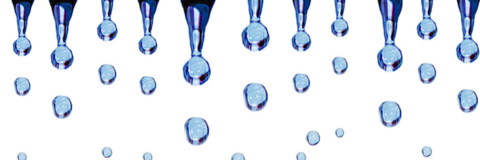
Hydrogen: 5 Metabolism Studies
Hydrogen-rich water decreases serum LDL-cholesterol levels and improves HDL function
Authors have found that hydrogen (dihydrogen; H2) has beneficial lipid-lowering effects in high-fat diet-fed Syrian golden hamsters. The objective of this study was to characterize the effects of H2-rich water (0.9-1.0 l/day) on the content, composition, and biological activities of serum lipoproteins on 20 patients with potential metabolic syndrome. Serum analysis showed that consumption of H2-rich water for 10 weeks resulted in decreased serum total-cholesterol (TC) and LDL-cholesterol (LDL-C) levels. Western blot analysis revealed a marked decrease of apolipoprotein (apo)B100 and apoE in serum. In addition, we found H2 significantly improved HDL functionality assessed in four independent ways, namely, i) protection against LDL oxidation, ii) inhibition of tumor necrosis factor (TNF)-α-induced monocyte adhesion to endothelial cells, iii) stimulation of cholesterol efflux from macrophage foam cells, and iv) protection of endothelial cells from TNF-α-induced apoptosis. Further, authors found consumption of H2-rich water resulted in an increase in antioxidant enzyme superoxide dismutase and a decrease in thiobarbituric acid-reactive substances in whole serum and LDL. In conclusion, supplementation with H2-rich water seems to decrease serum LDL-C and apoB levels, improve dyslipidemia-injured HDL functions, and reduce oxidative stress, and it may have a beneficial role in prevention of potential metabolic syndrome.
Song G, Li M, Sang H, Zhang L, Li X, Yao S, et al. Hydrogen-rich water decreases serum LDL-cholesterol levels and improves HDL function in patients with potential metabolic syndrome. J Lipid Res. 2013 Jul;54(7):1884-93.
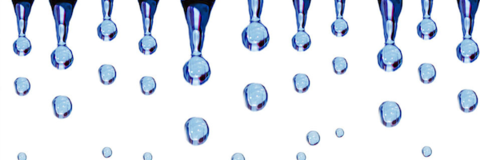
Hydrogen: 3 Kidney Studies
Hydrogen-rich water in patients with interstitial cystitis and painful bladder syndrome
The objective of this study was to investigate the efficacy of hydrogen-rich water for the treatment of patients with interstitial cystitis/painful bladder syndrome (IC/PBS). Authors conducted a prospective, randomized, double-blind, placebo-controlled clinical trial of hydrogen-rich water in patients with IC/PBS. Inclusion criteria were stable symptoms of IC/PBS for ≥ 12 weeks after bladder hydrodistension, Interstitial Cystitis Symptom Index score of ≥ 7 and bladder pain (question 4 on Interstitial Cystitis Symptom Index) of ≥ 4. They were randomized by a 2:1 ratio to receive hydrogen-rich water or placebo water for 8 weeks. The symptoms were assessed using the Interstitial Cystitis Symptom Index, Interstitial Cystitis Problem Index, Parsons’ Pelvic Pain and Urgency/Frequency Patient Symptom Scale, visual analog scale bladder pain scores, and a standard 3-day voiding diary. The primary outcome was improvement of patient-reported symptoms evaluated after treatment. A total of 30 participants (29 women and 1 man, age 64.0 ± 14.8 years) were enrolled in the present study, and 2 patients (both women) were withdrawn from the study. The score of bladder pain was significantly reduced in both groups. However, the effect of hydrogen-rich water on symptoms was not significantly different from that of placebo, although supplementation with hydrogen-rich water was extremely effective in improving the bladder pain score in 11% of the patients. The results of the present study do not support the use of supplementation with hydrogen-rich water for treating patients with IC/PBS.
Matsumoto S, Ueda T, Kakizaki H. Effect of supplementation with hydrogen-rich water in patients with interstitial cystitis/painful bladder syndrome. Urology. 2013;81:226-30.
